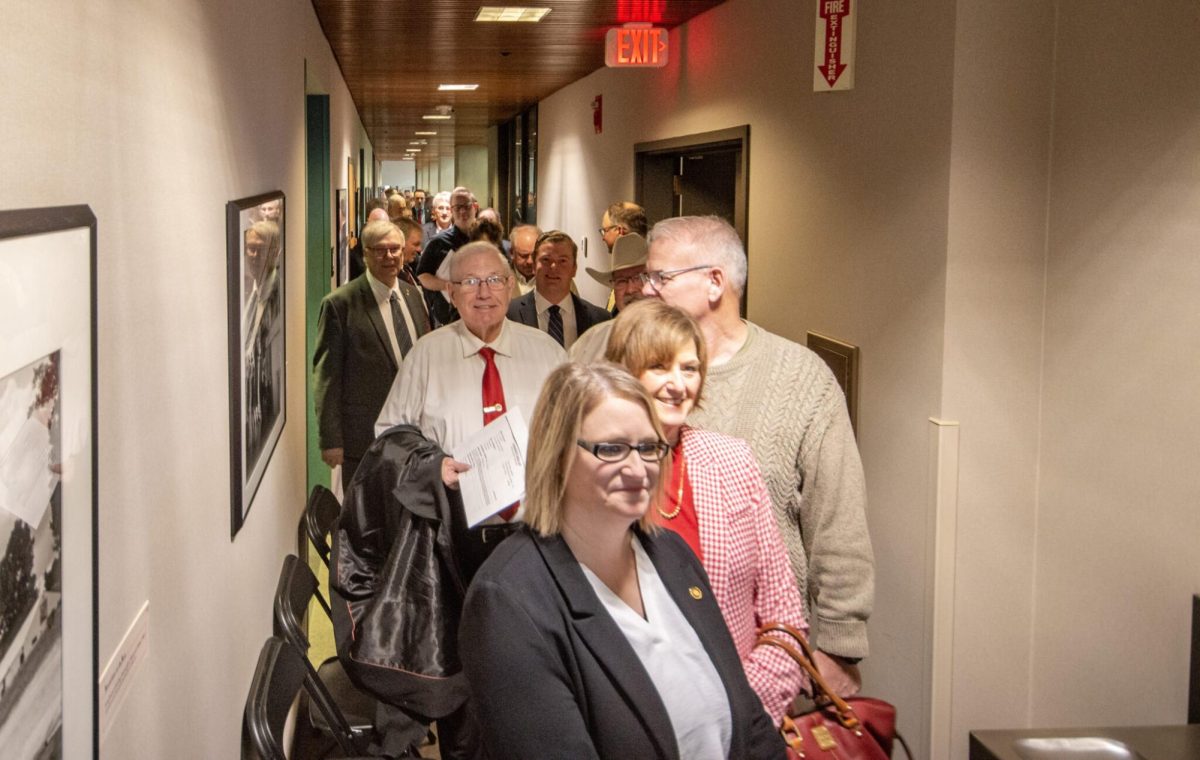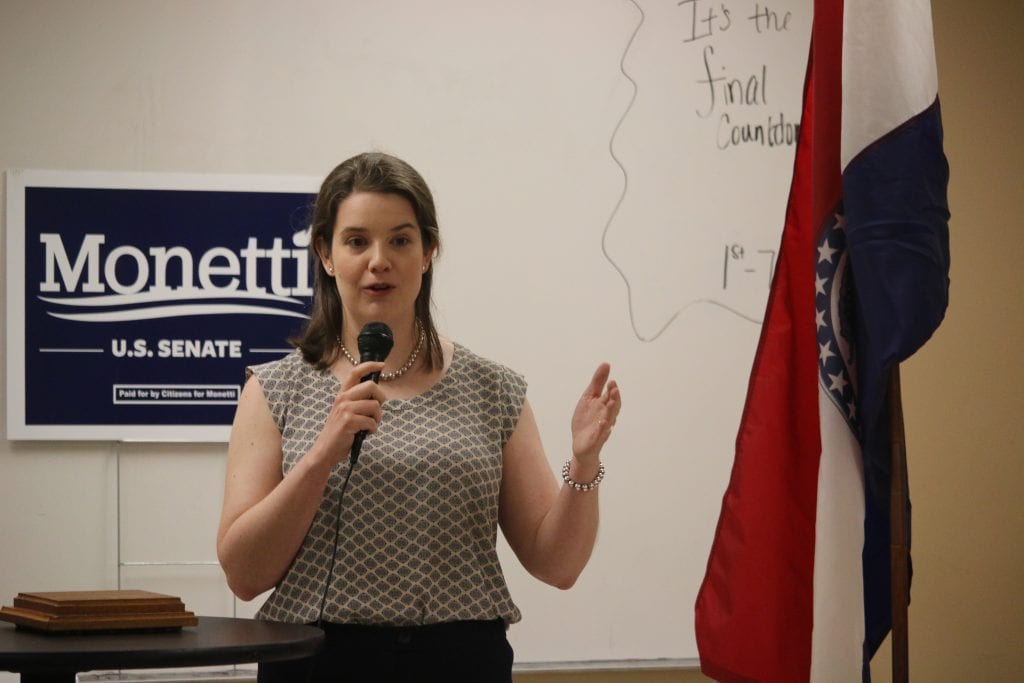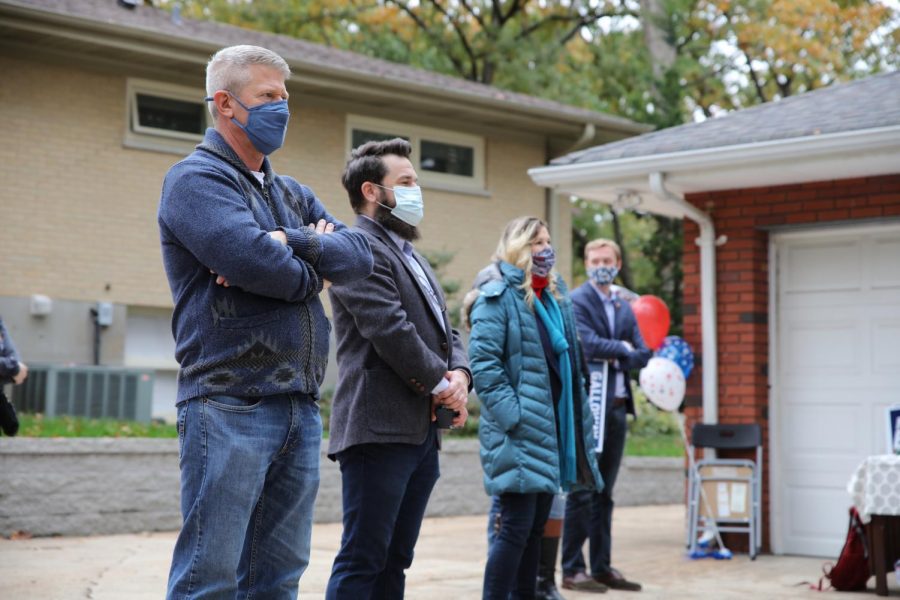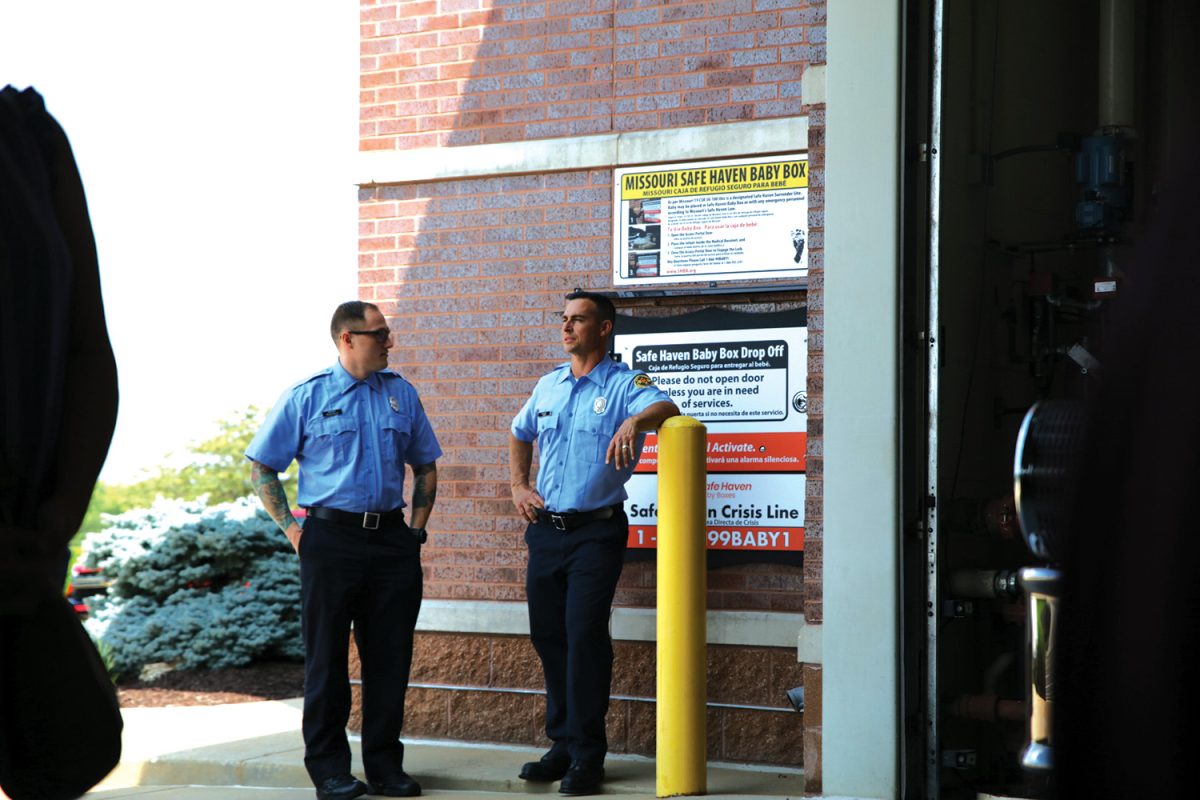By Tyler Wornell and Grigor Atanesian
Columbia Missourian
JEFFERSON CITY — Deliberating and shifting money around for five hours, the Senate Appropriations Committee finalized the details of its version of the 2019 budget last week, reducing a proposed funding increase for K-12 education and delaying pay raises for state employees.
The committee searched every nook and cranny for additional funds in various areas of the budget. The Senate’s version, which it was expected to finish last week after the committee adjusted language in the bill, will look similar to the House version.
One key change the Senate committee made was to the state’s K-12 foundation formula, which augments aid to public school districts across the state. The House voted to add $98 million for the foundation formula, enough money to fully fund it for the second year in a row.
Wanting to allocate more money for K-12 transportation, Sen. Dan Brown, R-Rolla, proposed reducing that increase to $48 million and using the remaining $50 million in other areas of the budget.
Sen. Jamilah Nasheed, D-St. Louis, didn’t wait to voice her opposition to the idea, calling it “an indictment on our society.”
“We either educate or incarcerate (students),” Nasheed said.
She called the lack of a skilled labor force one of the state’s most crucial problems.
“I didn’t make this decision lightly,” Brown replied. “It’ll make my life easier if we fully fund the formula.”
Nasheed suggested the committee go ahead and do that, to which Brown asked if that was responsible.
“Absolutely,” Nasheed said.
“I think you’re wrong,” Brown replied.
The committee moved forward with Brown’s proposal, distributing $25 million to K-12 transportation, $10 million to the Missouri Consolidated Health Care Program and the rest toward nursing-home facilities. Fully funding the formula was a priority of the House Budget Chairman, Rep. Scott Fitzpatrick, R-Shell Knob.
As for the higher education budget, the committee also considered a proposal by Brown to make 5 percent of universities’ core funding contingent on six performance measures. Nasheed opposed this initiative, arguing it would create a disadvantage for open-enrollment universities like Harris-Stowe and Lincoln.
“They can barely keep their doors open,” Nasheed said.
Harris-Stowe met only four of the six performance measures this year, meaning it would stand to lose about $156,000. One performance measure it didn’t meet calculates the percentage of a university’s expenditures that are spent on its core mission, which includes academic instruction. Harris-Stowe failed to meet the standard because it employs a large number of adjunct professors, whose salaries aren’t counted as core mission expenditures.
Nasheed said that these circumstances put Harris-Stowe at a disadvantage and that they don’t have enough funding as it is to meet the standards. She requested an additional $2 million — which the committee approved — for the university, saying that’s how much she’s been told the university needs to meet the standards.
“If we keep basing it on performance funding, Harris-Stowe will not receive the funding that’s needed to perform efficiently,” Nasheed said. “They cannot meet the standards.”
After a lengthy discussion, the committee voted not to include performance funding in this year’s budget. However, Brown said it will need to come into the picture in future budgets.
“As higher-education money gets more competitive, I think we’re going to have to rely more on some of the performance issues, and some of the schools that aren’t reaching performance issues. It’s up to them to change the way they do business,” Brown said. “I think that at some point we have to consider performance measures a little more aggressively than we have in the past.”
The committee also gave $2.5 million to Missouri Southern State University to help it avoid a financial crisis and appropriated $250,000 to the Greenley Research Center at the University of Missouri at Columbia.
To shore up money for the Missouri Consolidated Health Care Plan, which provides health insurance to state employees, the committee voted to delay pay raises to state employees until Jan. 1. While the move wouldn’t be enough to keep out-of-pocket and deductible costs flat, it would prevent an increase in premiums.
The pay raises were part of Gov. Eric Greitens’ proposed budget. Various versions of the budget proposal have included raises ranging from $650 to $700 a year.
The budget moves to the Senate floor where senators can make amendments. The budget will then go to a conference committee, where members of both the House and Senate will come to an agreement on a final version.






























